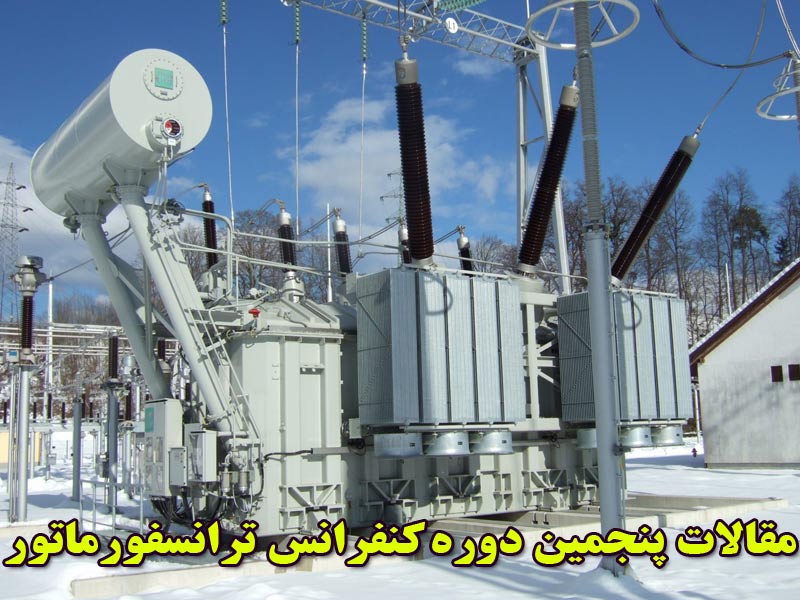Abstract
serious failure may occur due to copper sulfide formation on the winding papers of the power transformers. In recent years many researches have been done on mechanism of corrosive sulfur formation and its sources. Metal passivation is one of the major mitigation methods but it doesn’t solve the problem completely. Oil change is also a costly alternative choice. Few studies have been done on treatment methods for removing corrosive sulfur. Oil regeneration is a modern method that can reduce corrosive sulfur and Di-Benzyl Di-Sulfide (DBDS). In this study 3 oil samples with corrosive sulfur (4b) and initial DBDS concentration of 175,165 and 160 ppm were subjected to treatment by conventional fuller’s earth and also a novel modified catalyst. It was found that after 3 pass of treatment with the catalyst oil is non-corrosive (3a) but in the fuller’s earth case is still corrosive (4a) . The 91% and 54 % reduction in DBDS was observed for the catalyst and the fuller’s earth respectively. The 5 pass treatment with catalyst can reduce DBDS under detectable range while in the fuller’s earth case 8 pass is required to make the oil non-corrosive. Other oil specifications like TAN, IFT, Tan δ and oxidation stability also tested and it was found that treated oil with modified catalyst give acceptable results. According to the pilot results an economic study on the oil change and oil reclamation by new modified catalyst is done. This research was done in Rude Shure Power plant (Siemens O&M Company). It seems that treatment with new modified catalyst can be a good alternative for the corrosive sulfur problem both in technical and economical aspect. The researches still is in progress.
INTRODUCTION
Power transformers are vital elements of power transmission and distribution. Many parameters are involved in reliable and robust performance of transformers. Among them sulfur and its derivate are well recognized as an oil quality parameter [1][2]. Transformer age and temperature are two important parameters which can affect the contamination rate and conversion of non-corrosive sulfur to corrosive sulfur and Cu2S formation [3],[4]. Since more than of 89% the corrosive oils have their corrosiveness from DBDS and more than 20 ppm DBDS concentrations make the oil corrosive, DBDS is known as a key parameter in the oil.
The mechanism of failure has been demonstrated to involve conducting particles of copper sulfide, which is formed on the copper conductors and deposited upon the paper insulating tapes, rendering them partially conductive. This gives rise to enhanced dielectric losses within the affected paper tapes, leading to thermal instability and finally to a thermo-electric breakdown of the insulating system [5],[6].
Oil change can be an effective way to the problem, however, the cost may be high in this way, and there is also risk of conversion of non-corrosive sulfur to corrosive after being exposed to elevated temperature on hot metal surfaces and thus produce metal sulfides afterwards[4],[6].
Metal passivation is a well-known method to lower the risk of failure. In most cases this eliminates the formation tendency of copper sulfide [7]. But it cannot solve the problem completely, since the passivation concentration reduces during time, there is always the risk of re-contamination.
Passivation may cause another problem named “passivation induced stray gassing” which may affect transformer condition monitoring by dissolved gas analysis [8].
However, another obvious possibility to reduce the risks is to reduce the amount of the corrosive sulfur compounds in the oil. Oil regeneration or reclamation is another way to eliminate the corrosive sulfur [9]. However it was found that traditional oil reclamation is ineffective and time consuming due to high treatment cycles [10]. Researches have shown that conventional fuller’s earth which is used in the oil regeneration systems can reduce corrosive sulfur and DBDS but at least a 8 cycle treatment is required to reach to desirable standards [7],[11],[12].
Amines solutions have been widely used in the refinery industry for sulfur capturing [13]–[۱۵]. Recently some researchers studied the grafting amine to some adsorbent like zeolite to improve the adsorption selectivity and capacity [16], [17]. Manganese oxide also has high affinity for sulfur compound adsorption [18]. It seems that by combining this two reactive sulfur demander with conventional fuller’s earth, a new modified catalyst can be produce which may have better performance in the corrosive sulfur treatment.
In this study, performance of modified catalyst was compared with traditional fuller’s earth in a pilot (in Rude Shure Power plant, Siemens O&M Company shown in Figure 1) . Other oil specifications also monitored in order to evaluate the novel catalyst as an alternative for corrosive sulfur treatment and also oil regeneration simultaneously.
Ghazi Mirsaeed , K. Moshtaghi Monem , M.Movaagr





